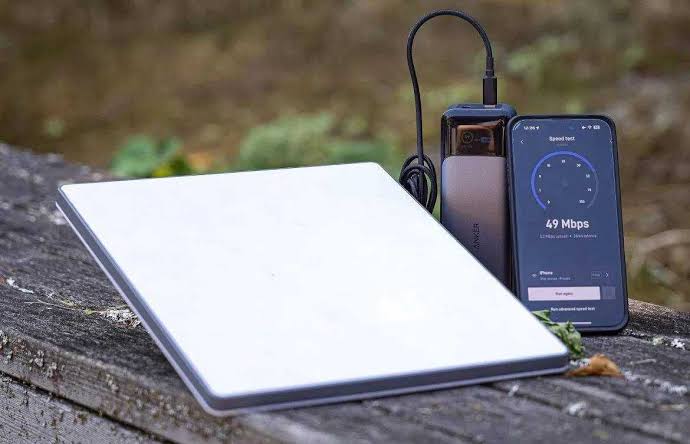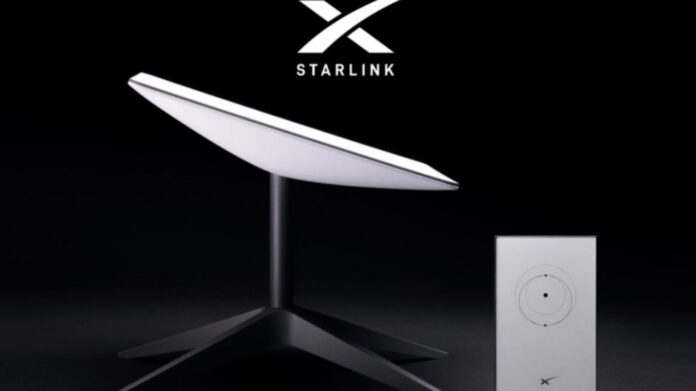Starlink, the satellite internet provider owned by Elon Musk, has launched a more affordable option for Kenyans with the introduction of the ‘Starlink Mini Kit.’
The new kit is priced at KSh 27,000 (US$30.87), significantly cheaper than the original kit, which costs KSh 45,000. The Starlink Mini Kit offers speeds of up to 100 Mbps, targeting customers who want high-speed internet but at a more affordable price.
Highlights
- New Mini Kit: Priced at KSh 27,000, offering speeds of up to 100 Mbps.
- Original Starlink Kit: Costs KSh 45,000 with higher speed and wider coverage.
- Competition with Safaricom: Safaricom responds by upgrading fiber internet speeds without reducing prices.
- Starlink growth in Kenya: Rising demand as educational institutions, businesses, and even county governments install Starlink services.
Starlink’s Affordable Option
Since Starlink entered the Kenyan market in July 2023, the high price of its original kit has been a barrier for many potential users. To address this, the company has launched the Mini Kit, which is smaller and more portable but still provides fast internet speeds. The Mini Kit covers up to 112 square meters and is ideal for basic internet use, whether at home or on the go.

For comparison, the standard Starlink kit covers a much larger area of up to 297 square meters and is designed for more demanding applications like video streaming and gaming. It can also endure extreme weather conditions, making it more versatile for heavy users.
Starlink’s introduction of the Mini Kit is a fulfillment of CEO Elon Musk’s promise made in June 2024 that a more affordable version would be available in Kenya by the end of the year. This move is part of Starlink’s strategy to attract more customers, especially those who found the initial price too high.
READ ALSO:Elon Musk comments on Starlink Entry into the kenyan markets
Competitive Response from Safaricom
As Starlink continues to expand its presence in Kenya, local internet provider Safaricom has taken measures to stay competitive. Just three days before Starlink’s Mini Kit launch, Safaricom upgraded its fiber internet speeds without lowering prices. For instance, Safaricom’s 10 Mbps package, which costs KSh 3,000, now offers 15 Mbps. The premium 100 Mbps package has been boosted to 500 Mbps, maintaining the KSh 12,500 price tag.

While Safaricom has increased speeds, it has not reduced the cost of its packages, leaving room for Starlink to attract more price-conscious consumers. Safaricom currently dominates the fixed broadband market with a 36.7% share but faces increasing competition from Starlink, which offers satellite-based services, making it ideal for remote areas where fiber internet is not available.
Additional Efforts by Starlink
The launch of the Mini Kit follows other initiatives by Starlink to make its service more affordable. In August 2024, the company introduced a rental plan allowing customers to rent a kit for just US$15 (KSh 1,950) per month, with an additional one-time activation fee of KSh 2,730. Monthly service plans start at KSh 1,300 for a 50 GB data package, providing speeds of up to 200 Mbps.
Starlink also offers a Residential Lite Package for KSh 4,000, catering to different customer needs. These efforts have contributed to a steady increase in the number of Starlink users in Kenya, which now stands at around 4,000. Industry experts predict that this number could double by the end of the year as more people take advantage of the new affordable options.
Related Stories
Starlink Shakes Up the Kenyan Internet Market: Comparing Prices and Speeds
Regulatory Hurdles and Market Challenges
Despite its growing popularity, Starlink has faced some challenges in Kenya. Safaricom, concerned about losing its market dominance, has reportedly asked the Communications Authority of Kenya (CA) to review Starlink’s operations, claiming that satellite internet services could disrupt the local market and pose risks to mobile network operators (MNOs).
However, Starlink has been navigating regulatory hurdles across Africa. In countries like Botswana and Zimbabwe, the company recently resolved licensing issues and has gained approval to operate. Currently, Starlink is in talks with regulators in South Africa and Angola to finalize licensing agreements, aiming to expand its footprint across the continent.
Starlink’s introduction of the Mini Kit and other affordable options signals the company’s commitment to expanding its customer base in Kenya.As competition with Safaricom intensifies, how local ISPs will adapt to the growing presence of satellite internet services remains to be seen. For now, Starlink’s affordable and high-speed internet options make it a compelling choice for Kenyans, particularly those in underserved areas.
